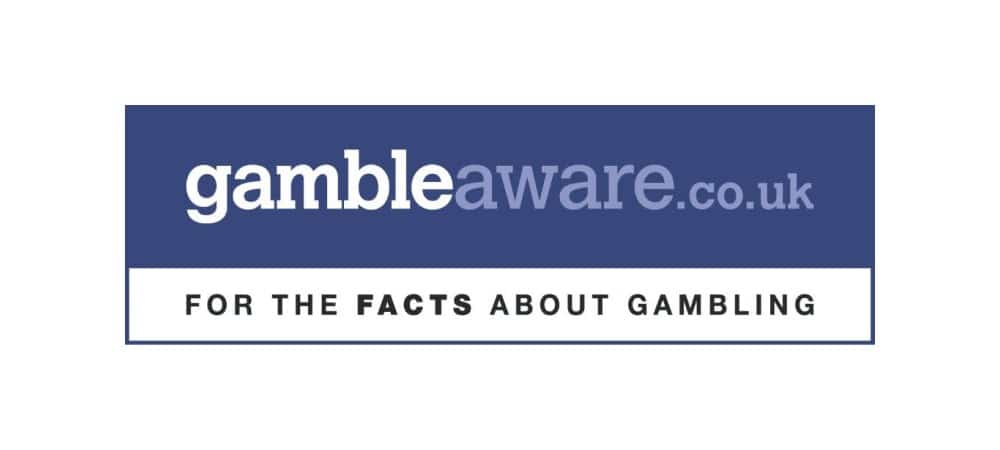- All British gambling operators are required to make a donation to GambleAware, a charity organization that manages problem gambling.
- GVC Holdings pledged to donate 1.45 million pounds to charity, the most among all bookmakers in the area.
- In the U.S., each state with legal sports betting has its own provision for how much taxes, if any, will be used to treat problem gambling.
TALLAHASSEE, Fla. – GambleAware, a British-based charity that aims at tackling gambling-related harm in society, published details of donations for Q1 and Q2 2019/2020 last week.
Between April 1, 2019, through September 30, 2019, the organization brought in a total of 5.4 million pounds worth of donations and pledges. This figure excludes any regulatory settlements that bookmakers had to incur.
According to GambleAware’s press release, a bulk of those funds came from three major bookmakers. Those companies are Bet365 which donated 868,000 pounds, William Hill which pledged to contribute 1 million pounds, and GVC Holdings which pledged to give away 1.45 million pounds to the group.
British gambling companies have to make mandatory contributions to GambleAware. The organization expects those operators that make more than 250,000 pounds in net revenue to donate at least 0.1% of their earnings. Those that make less than that amount are expected to donate at least 250 pounds.
There are plenty of bookmakers in the U.K., which makes funding the organization easier and tackling problem gambling a bit more efficient.
But, what about the U.S.? With legal sports betting becoming more prevalent throughout the country, opponents of the activity are worried that gambling addiction will only increase. So how have lawmakers taken on this issue?
How The U.S. Has Dealt With Legal Sports Betting And Problem Gambling
When the Professional and Amateur Sports Protection Act (PASPA) was found to be unconstitutional in May of 2018, it opened the door for individual states to regulate sports betting to their own choosing.
This means that there is no federal percentage of funds that bookmakers have to donate to problem gambling services.
In fact, none of the states with legalized sports betting has mandated that sports wagering companies themselves have to donate to a charitable organization like GambleAware.
Instead, many states require a portion of the taxes collected from gaming operators to go to state-funded gambling addiction services.
For example, the Indiana sports betting bill IN SB 552, which was passed in May, mandated that a 9.5% tax would be enforced on each sportsbook’s gross revenue. Of that 9.5% tax, 3.33% is going to be issued out to gambling addiction services.
Indiana legalized both land-based sports betting at over a dozen gaming venues as well as mobile sports betting throughout the state. The sports betting market is expected to be quite large so that 3.33% could become a substantial amount of money.
To counter that, NH HB 480, which was signed into law in New Hampshire this summer, did not include language that specified how much funds will be used, if any, to treat problem gambling. A general tax rate was not mentioned either. Sports betting operators will have to negotiate with the state regulators individually.
Because of this disparity, it’s difficult to tell if problem-gambling services are being funded correctly or efficiently.
Federal regulations such as those in the U.K. may work in that region because of the size of the U.K. However, in the U.S., the population and gambling market in each state varies. This means that setting a required amount to be donated in each state may not work.
Some states may end up funding these services too much and won’t be able to use the money collected from sports betting for other state initiatives. Other states may have an extremely large number of sports bettors and may not be donating enough to counteract problem gambling.
For now and for the foreseeable future, it will be up to local lawmakers to decide how the pie gets split and how much should go towards these types of state-funded services.
Advertising Disclosure
In order to provide you with the best independent sports betting news and content LegalSportsBetting.com may receive a commission from partners when you make a purchase through a link on our site.
News tags: bet365 | GambleAware | GVC Holdings | Indiana | New Hampshire | William Hill

– In his career, Hasan has worked both local and state government positions—including the Attorney General’s Office in Florida. On top of being familiar with the legislative process, he has also been researching and writing on the legality of sports betting across the US. Outside of work you’ll most likely find him producing or playing music, playing sports, or working on creative writing projects. You’ll also catch him at Doak Campbell Stadium cheering on the Noles.


 College Football Betting
College Football Betting Best Online Sports Betting
Best Online Sports Betting Best Legal NFL Betting
Best Legal NFL Betting States With Legal Sports Betting
States With Legal Sports Betting Sports Betting Events
Sports Betting Events




